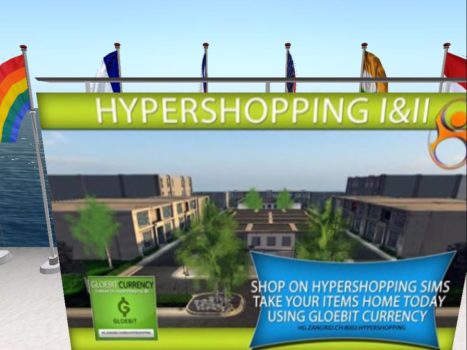
The first meeting of the Hypergrid Chamber of Commerce will be at 11 a.m. Pacific time on Friday, July 21 and several major players in the OpenSim economy have officially joined as members, including Gloebit, Podex, and Kitely.
Another early supporter is GamesCredit, which offers cryptocurrency-based in-game payments.
The group plans to work on standards for secure in-world transactions, and to investigate FinCEN regulations, Internal Revenue Service guidelines, intellectual property concerns and other economy-related topics relevant to OpenSim grids and virtual worlds in general.
The group will also discuss bugs currently affecting OpenSim commerce, current virtual currency systems, and improving content permissions and protecting intellectual property.
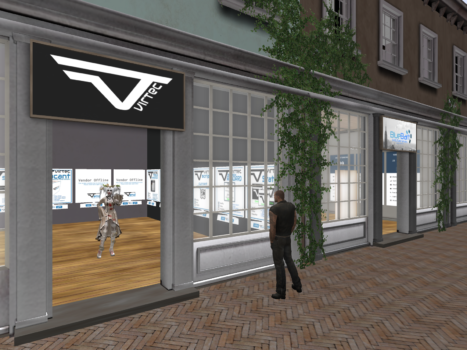
The group is also accepting proposals about other items to include in the agenda, said Mike Lorrey, who heads up the HCC’s commerce working group.
“It is clear to many that virtual reality business models that center on walled gardens do not serve the interests of creators or consumers,” he told Hypergrid Business. “We are dedicated to an open metaverse where creators can sell their content widely, under whatever licenses they prefer, and trust that their intellectual property rights are strongly protected as well as being able to trust the currencies used and that hosting companies or groups honor standards of intellectual property and provide affordable and accessible means of redressing grievances and arbitrating disputes.”
The efforts will help improve monetary security, prevent fraud in transactions, protect intellectual property, and promote creation of technology that helps users transfer money and other virtual items safely and easily from one currency and virtual platform to another, he said.
“As the OpenSim community is rather fractured or fragmented with regards to commerce, and even core economic philosophies, we felt it was important to create the Hypergrid Chamber of Commerce Google Plus group for the commerce working group to interface with the public, to ensure transparency and public awareness of its processes and work, and to help promote commerce in general in the open virtual reality metaverse and to stand for the ideas that commerce creates the wealth that makes technological progress possible,” he said.
The Hypergrid Chamber of Commerce is a working group of the Infinite Metaverse Alliance, which wants to ensure that the hypergrid protocol becomes both more standardized, less buggy, more robust, able to allow more trade, boost communications and see that the currency exchanges occur much more reliably than it currently does.
Support from key players
A newer player in the space is Gloebits, which offers a single virtual currency that can be used on multiple grids. Gloebits allow hypergrid users to have a single Gloebit wallet, and spend that currency in many places without having to buy and sell individual currencies for different grids.
Gloebits are currently in use on more than two dozen grids and other applications.
Standardization will not only help OpenSim, but also virtual reality in general, Gloebits founder and CEO Christopher Colosi told Hypergrid Business. Such standardization would be as helpful as it was for the web technology that was expected to serve multiple browsers and languages, he said.

“Additionally, you want those standard protocols to be well thought out to serve not only the needs of today, but of those that will evolve in the future,” he said.
Better cooperation between platforms and services can also help address some current commerce-related OpenSim problems.
Take, for example, the issue of conflicting money modules.
When two modules or currencies are enabled on the same region, neither of them works properly, Colosi said. It is unclear if all money modules respect the proper process configurations that allows both to be used.
“Ideally, there would be a way to ensure that two money modules are never both enabled and consuming the commerce events from a single region,” he said. “Or, if people want to be able to offer multiple money modules — not saying that is a good idea — then there needs to be an interface for a user to choose what to use, and way to enforce that the installed modules respect that choice.”
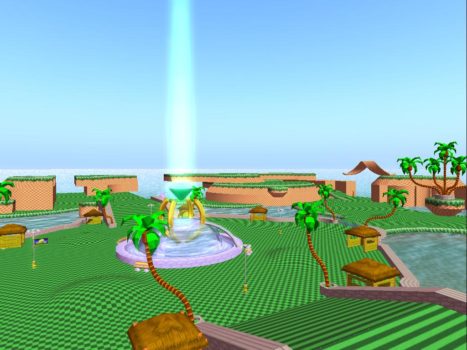
The buy-currency and insufficient-funds interfaces in the viewers also need to be redesigned to allow third party currency systems, as well as allow open grids and grids to run different currencies on different regions.
“They were designed expecting that the grid controlled the currency and that there was only one currency system across a grid,” he said. “Now we have third-party currency systems, open grids, and grids which run different currencies on different sims or regions.”
Plus, it isn’t always clear to the user which currency is currently in use, especially if a grid supports multiple currencies.
“The currency symbol is designed to be universal, so it can be wrong,” he said. “We provide our own custom messaging and our partners often provide messaging on their region, but this probably warrants some viewer user interface.”
In addition, the built-in land sale functionality in the viewers doesn’t always support third-party currencies, he said.
“Gloebit has done a lot of work to fix the latter two issues here in our module, but it is work that our module shouldn’t be doing,” he said. “This system should be redesigned.”
Other OpenSim companies will also benefit from increased cooperation between participants in the platform.
That includes Kitely, the largest commercial grid by land area, and a top-ten grid by active user numbers.

“Kitely has long been committed to working with other OpenSim service providers to advance metaverse commerce,” Kitely CEO Ilan Tochner told Hypergrid Business. “Kitely Market wouldn’t have become the leading hypergrid marketplace if that were not the case.”
The Kitely Market, while it is operated by Kitely, a commercial OpenSim grid, is widely used by residents throughout the OpenSim metaverse. As of last month, the Kitely Market delivers content directly to the users of 194 different OpenSim grids.
Many commercial grids that compete directly with Kitely allow their users to access the Kitely Market in order to offer their residents the widest possible array of virtual content.
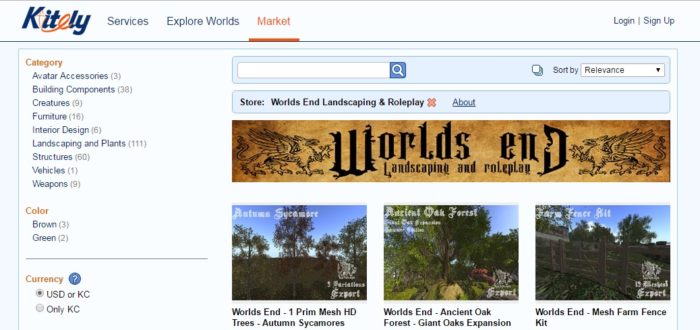
Podex is another important player in the broader OpenSim economy. The company provides in-world currency platforms for grids and allows users to trade virtual currencies.
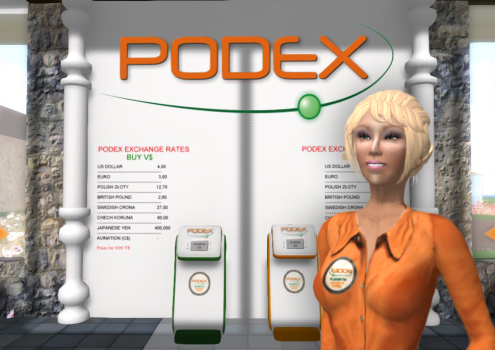
“Although currency sellers are competitors, we are not enemies and there are always areas in which we can cooperate,” Podex CEO Jacek Shuftan told Hypergrid Business.Â
- OpenSim active users hit all-time-high for the holidays - December 15, 2023
- OpenSim user activity ramping up for the holidays - November 15, 2023
- OpenSim land area at a new high as grids prep for holidays - October 15, 2023
